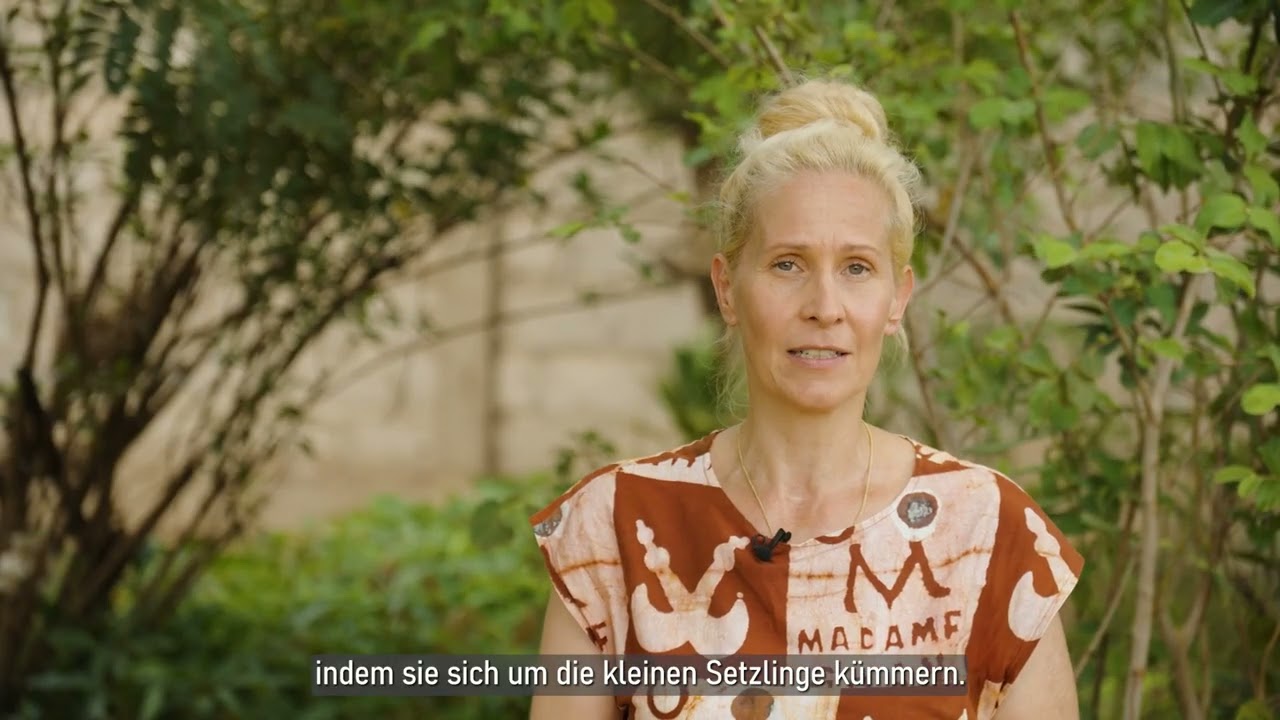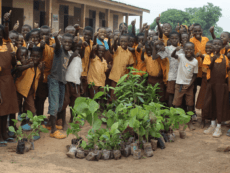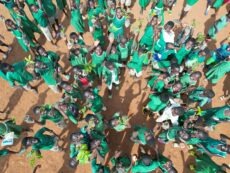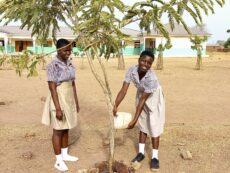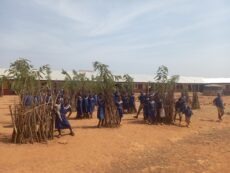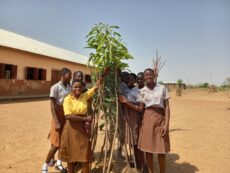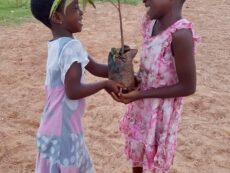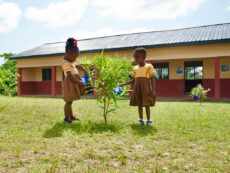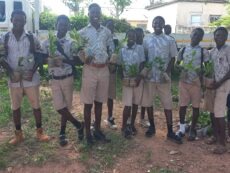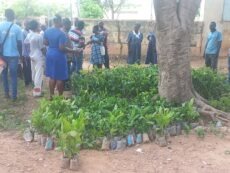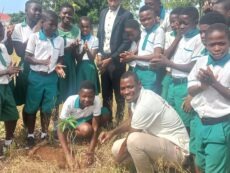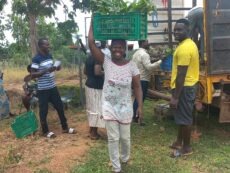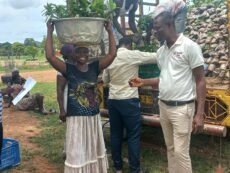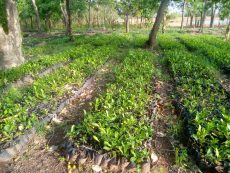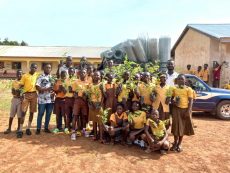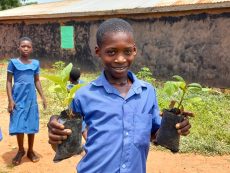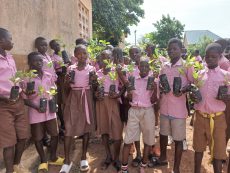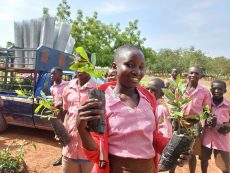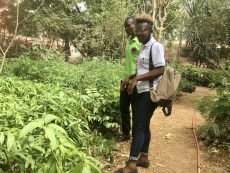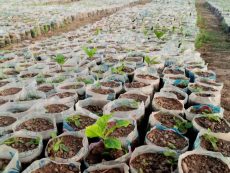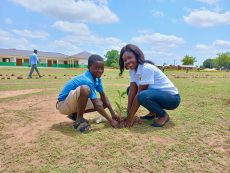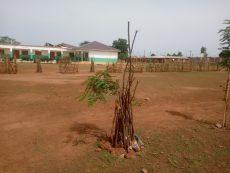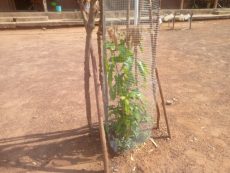
We sow the future – much more than just trees
The goal is to plant more than 500,000 trees.
The State of Ghana’s Forests – A Critical Assessment
Ghana’s forests are in an alarming condition: over the past hundred years, forest cover has shrunk by around 80 percent, only one-fifth of the original forest area remains. The high demand for wood, especially for furniture and construction, accelerates the destruction of natural habitats, causes erosion, and alters the local climate. More than one-third of the country is also threatened by advancing desertification, the spread of the Sahara southward.
Only consistent protection and reforestation measures can stop the further degradation of these valuable ecosystems.
With our project:
We are sowing the future – much more than just trees,
which was launched as a Christmas project in 2019, we are countering the threatening exodus of the young population with a project that will create new growth and prospects of staying.
With 1 Euro per seedling you can support the project!
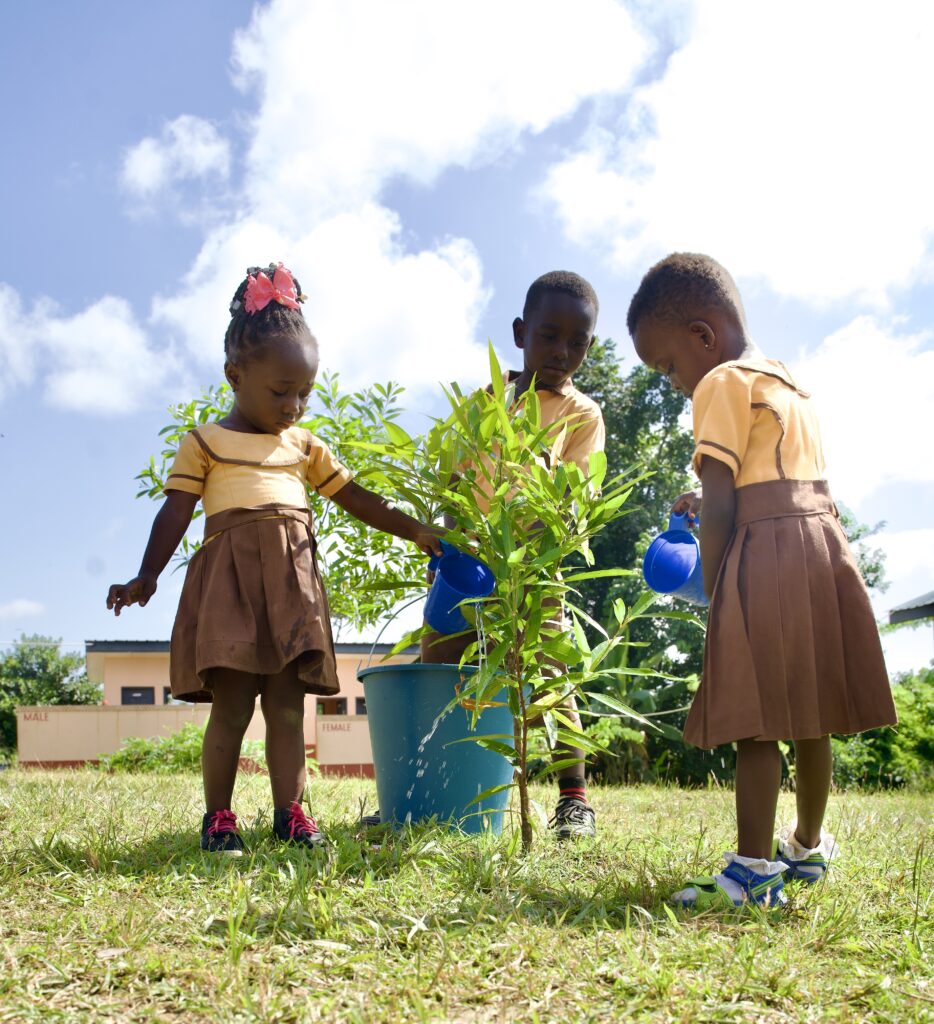
A joint project with sustainable prospects
Children and teenager of various schools and educational institutions are involved in this reforestation project; as will their families, the local forest industry and the most important decision-makers on site. That creates cohesion.
The joint and collaborative character of the project has an additional effect: it prevents people from the feeling of being left behind. That deprives local islamist extremists of their breeding ground
Prospective 1: Reforestation
To combat deforestation and rural exodus
Prospective 2: Education offensive
To raise awareness for climate and environment protection
Prospective 3: Generation of income
To develop new sources of income for girls and young women
Prospective 4: Active environment protection
To increase the forest areas in the long term
Project implementation
In June 2021, the first 10,000 trees had been planted in the first phase with 40 partner schools in West Mamprusi.
In the 2nd phase, another 10,000 trees followed in East Mamprusi in June 2022.
In July 2023, the 3rd tree planting campaign took place in the Upper East Region in northern Ghana. A total of 44,150 seedlings were planted across 6 different districts.
In July 2024, in the Tamale region of northern Ghana, a total of 3,090 seedlings were successfully planted together with 49 partner schools from the Kumbungu and Savelugu districts. Various tree species were used, including mango, mahogany, neem, cashew, teak, and acacia. To protect the young trees from animal browsing, each seedling was secured with a wire fence.
In March 2025, the new phase of our tree-planting campaign began in the Nanton and Tolon districts of northern Ghana. Working with 35 selected schools, we are currently preparing to plant around 7,000 seedlings—among them mango, mahogany, acacia, neem, and cashew. The trees are being raised by a partner nursery in Tamale, and distribution and planting are scheduled for June and July. As in the previous year, protecting the young trees from animals remains a central challenge—therefore, we again plan to secure all seedlings with wire fences. To ensure a lasting impact, the project will be accompanied by environmental education activities.
To date, we have managed to plant more than 74,000 new trees. This is a significant step in the right direction, but of course we will continue.
One of the biggest remaining challenges, however, is the inadequate water supply, since most schools do not have their own well. A reliable water source is particularly essential during the critical initial phase.
Therefore, our goal is to equip as many of these schools as possible with their own well in the future.
Ambassador for the project “Sowing the future”
Mrs. Natalie Retzlaff
Wife of the German Ambassador to Ghana

“As a geographer, I was able to see the situation for myself on the ground. 28 years ago we mapped tree populations in West Africa – now the rainforest has almost vanished.
Sowing the future – harvesting perspectives is the motto of the project, which tackles the problems at their roots. Planting trees is absolutely up-to-date and especially useful in a region that is already affected by climate change. The action of Madamfo Ghana – the friends of Ghana is very close to my heart. Madamfo has developed a concept that gives the rural population in the north of Ghana perspectives to help shape the future and fight against the causes of flight”


